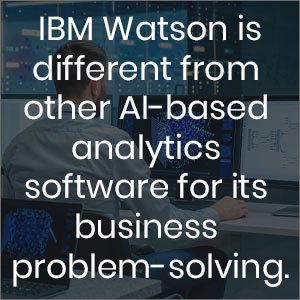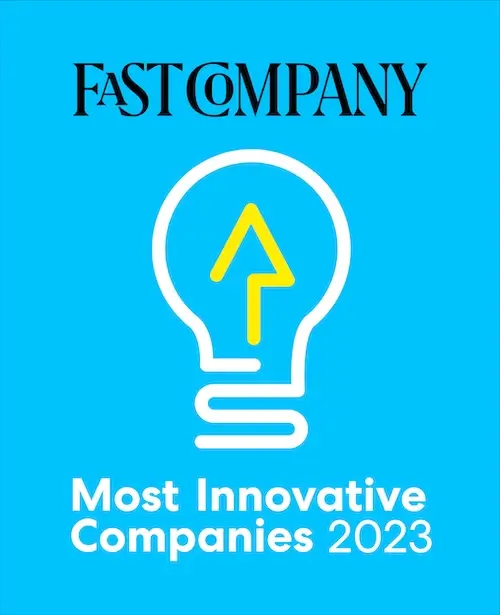Nearly a decade ago now, IBM’s artificial intelligence (AI) technology triumphed on the game show Jeopardy! and garnered worldwide attention. It competed against a couple of human players, Ken Jennings and Brad Rutter, the most successful in the show’s history.
The AI avatar – disconnected from the Internet – was situated between the two top-ranked contestants, while its software and hardware were placed in another part of the building. In the practice round, it showed a human’s ability for complex wordplay, correctly answering the question, “Classic candy bar that’s a female Supreme Court justice” with “What is Baby Ruth Ginsburg?” Even more interestingly, it was able to compare its wrong answers against the right ones. That was to see where it erred exactly and, therefore, inform future responses.
The victory was a milestone for the multinational technology company, to say the least. It was the result of IBM mining human language for the semantic meaning of words and enabling the supercomputer to answer Jeopardy-like questions. This was virtually impossible for any single computer in the years previously.
IBM WATSON AND AI
Not long after that public contest, IBM created a new business division for “cognitive computing” and heavily invested in the application of AI. At first, it partnered with New York City’s Sloan Kettering Cancer Center, allowing its AI to perform cost management analysis of lung cancer treatment. Then, it deployed its AI – which became known as Watson – in a myriad of other industries: education, government, veterinary science, geotechnical engineering, and food and beverage.
The roles that Watson played have involved applying machine learning in some particular fashion. It has served as a chef, movie director, and dress designer, and has even provided roadside assistance!
So clearly, IBM Watson has evolved from being that big, computerized “brain,” which won millions of dollars on a popular game show. In fact, it has become the “gold standard for purposeful analytics processing.”
IBM Watson, in and of itself, may not be the next member of your legal team. But it has a significant role to play in the legal industry, too. Here is a little more about what IBM Watson is – and how it is being used in contract management today.
WHAT IS IBM WATSON IN LEGAL AND AI, AND WHY DOES IT MATTER?
Named after IBM’s very first CEO, Thomas J. Watson, the technology was originally intended to be a natural language-responsive system. It was first developed to interpret and answer questions asked in a human language, and analyze incredible amounts of data. It then evolved to be a data analytics processor, analyzing vast repositories – at a rate of 80 teraflops every second. As new data is added to Watson’s repository, it uses machine learning to build on its knowledge of individual subject areas and deliver even more insight to users.
But IBM Watson is quite different from other AI-based analytics software due to its business problem-solving. The technology has become so user-friendly, in fact, that it is employed by professionals outside of data analytics teams. (Yes, even those without technical backgrounds!)
And as stated above, companies in a host of industries are already using IBM Watson for predictive analytics and problem-solving. They are either running the Watson system internally or accessing it through the IBM cloud. That makes it an incredibly viable option for both large- and mid-size companies.
IBM WATSON IN LEGAL
These days, it is important to mitigate contract risk while maximizing profitability. This, as businesses, build relationships with new suppliers, partners, customers, and employees. So, organizations need to move on from antiquated contract repositories and authoring tools. And adopting modern software, which infuses contract management with AI, is a critical next step.
IBM Watson boasts seamless and limitless functionality, and helps break down traditional barriers around legal documents. The application of the AI technology in contract management software enables users to assemble, automate, approve, digitally sign, and manage all of their contracts – all from one place.
And when IBM Watson is fully integrated with contract management, AI contract analysts are better able to fulfill their entire function: reading, interpreting, analyzing, and reporting key contract information. That is in addition to managing full contract workflow and approvals, and automatically setting alerts and reminders for important dates.
Let’s face it, humans can tire or lose focus easily whenever tasked with authoring custom contracts, searching historical agreements for acceptable terms, or dealing with multiple rounds of contact changes. Well, the good news is that the automation of contract and document assembly leads to the quicker creation of contracts, ensures agreement terms are properly vetted, and protects the business’ interests overall.
BENEFITS OF CONTRACT MANAGEMENT WITH IBM WATSON
By infusing your contract management with IBM Watson, you can accelerate the assembly of sell-side contracts and fast-track reviews for buy-side contracts. You can receive deep insights into contract performance across the organization. You can compare contract terms against historical agreements more simply and review clauses rather thoroughly. In addition, with an AI engine like IBM Watson, you can:
- Manage risks amidst the accelerated pace of business and increased regulatory requirements for business transparency
- Prevent contract lifecycle management (CLM) delays, extended negotiations, or impediments to contract managers’ productivity
- Transform contract insights into intelligence, parsing thousands of contracts and their metadata to find out how many contracts are up for renewal; the number of contracts that were – or were not- renewed for specific services, regions, or deal sizes; how long it takes to negotiate contracts or which salespeople are securing the most business; who is viewing and sharing contracts, or approving their terms with e-signatures; and external trends impacting in-house counsel
- Contain costs of contracts – those written in a complex language; containing elaborate terms absolving parties of any potential liability; subject to ongoing review by regulatory auditors; extending through multiple renewal cycles; and serving as the foundation of strategic partnerships or corporate acquisitions
USING THE BEST AI TECHNOLOGY
It is a truism that individual contracts represent each and every company’s past successes and current obligations. They have a bearing on future opportunities, too. Well, the very same can be said about an efficient and effective contract management system (CMS).
Fully understanding the trends of business’ contracts empowers general counsels (GCs) and legal teams to make data-driven decisions: modifying product or service offerings, expanding into new markets, or hiring new employees. In the absence of an AI-enhanced CLM solution, legal professionals can struggle to assemble documents and review supplier agreement terms; view contract performance data; and make strategic decisions based on reliable insights. They can also see production costs climb rather steadily.
So, are you interested in having contract management software – powered by IBM’s Watson AI – in your own corporate legal division and enterprise? Contact ContractPodAi and find out how you can adopt and implement one for your business today!
Author:

Anurag Malik
Connect with us on Linkedin
Further Reading:











